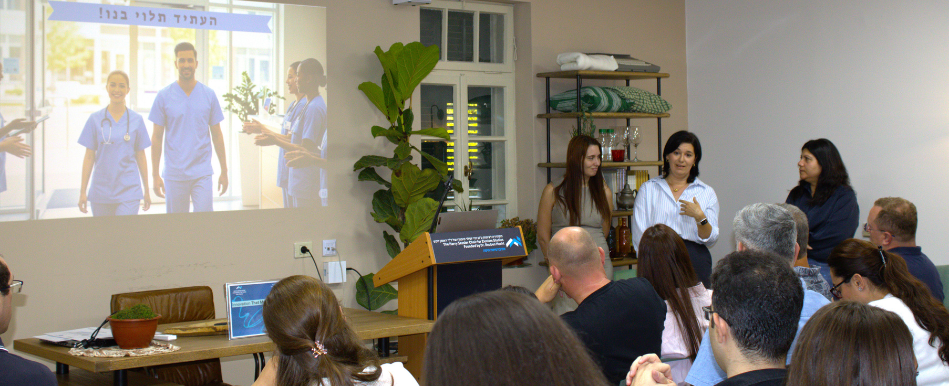Health and well-being

Improving health and quality of life is at the core of many challenges we tackle at HIL. Our programs support innovative solutions that address physical and mental health, preventive care, accessibility, and the integration of technology in healthcare. By connecting entrepreneurs, healthcare professionals, researchers, and organizations, we foster impactful ventures that respond to real needs and promote a healthier future for individuals and communities alike.
We do this through a dedicated acceleration program tailored for early-stage health and wellbeing ventures, as well as a unique academic course based on the CDI (Challenge-Driven Innovation) methodology. This methodology places real-world needs at the center of the learning and innovation process, combining multidisciplinary teamwork, user-centered design, and systems thinking. By bridging academia, healthcare systems, and the entrepreneurial ecosystem, we create a dynamic environment where ideas grow into implementable, sustainable solutions.
Preventing Falls Among Older Adults
Proposed by: Clalit Health Services
The Challenge:
Falls among older adults are common and potentially life-altering — with nearly half of all seniors expected to fall at least once. The consequences can include serious injury, loss of independence, ongoing fear, social isolation, and high healthcare costs.
Although mobility aids such as walking sticks and walkers are available and proven effective, they are significantly underused — even by individuals who are at high risk or have already experienced a fall.
This challenge seeks innovative ways to bridge the gap between need and usage, empowering older adults to adopt preventive tools and maintain their quality of life.
Reducing No-Shows in Medical Appointments
Proposed by: Clalit Health Services
The Challenge:
No-shows — when patients miss scheduled appointments without notice — are a widespread issue in healthcare. In some fields and populations, the rate can reach 30%–40%.
The impact is significant: longer wait times, disruption of urgent care, inefficient use of resources, and reduced provider income.
This challenge seeks smart, adaptive solutions to reduce no-show rates — enhancing appointment management, increasing patient engagement, and improving overall system efficiency.
Work-Life Balance for Early-Career Nurses
Proposed by: Carmel Medical Center
The Challenge:
Roughly 30% of the nursing staff are early-career professionals (0–5 years of experience), many of whom are in the process of starting families. They seek greater work-life balance and often avoid taking on responsibilities beyond the minimum.
This can result in burnout, high turnover, reduced engagement, and gaps in skill development — a challenge shared by healthcare systems worldwide.
The goal is to design supportive organizational and behavioral solutions that empower young nurses, promote retention, and ensure high-quality patient care within a modern and flexible work environment.
Rapid Transmission of Critical Lab Results to Medical Teams
Proposed by: Carmel Medical Center
The Challenge:
Delays in delivering critical lab results to the care team can compromise patient safety and disrupt clinical decision-making. The current process is inefficient — involving multiple phone calls, unclear points of contact, and unmanned stations — leading to breakdowns in communication.
At Carmel Medical Center alone, over 300 critical results are delivered each month, reflecting a broader issue across hospitals.
This challenge seeks secure, streamlined solutions for transmitting urgent information in real time — supporting faster response, improved coordination, and better outcomes for patients.
